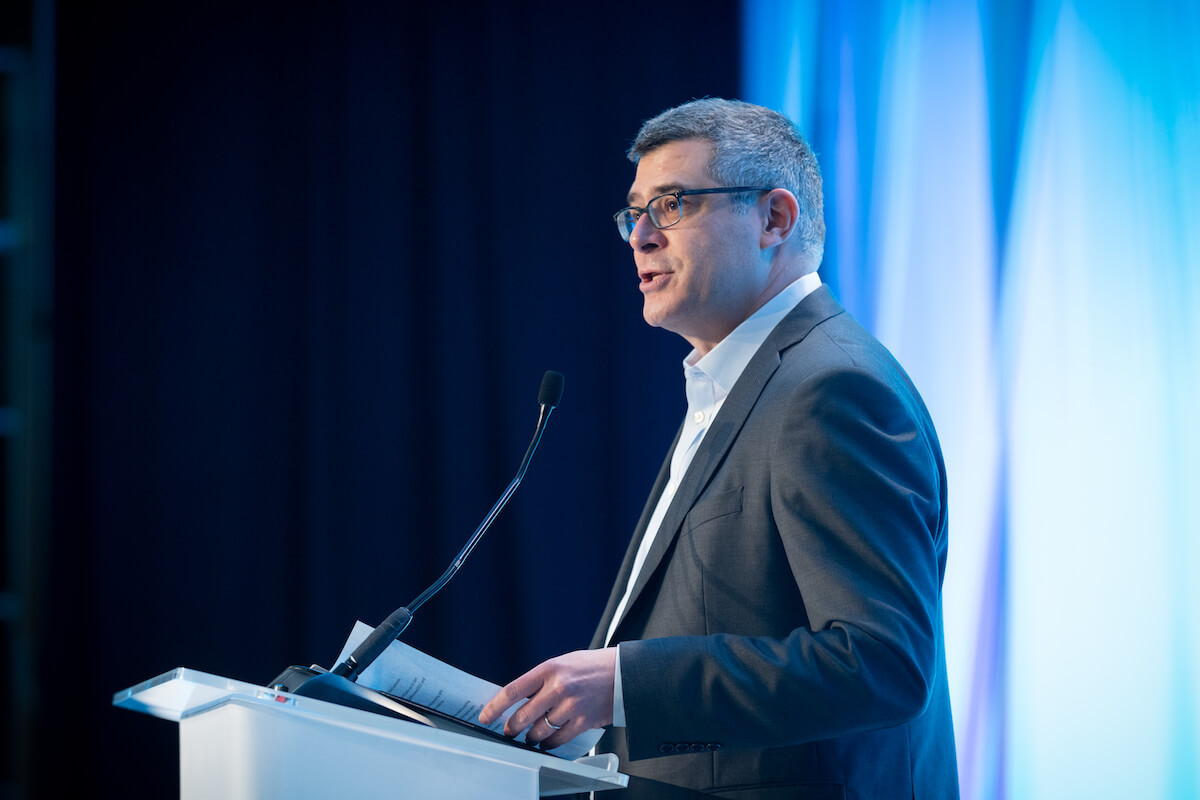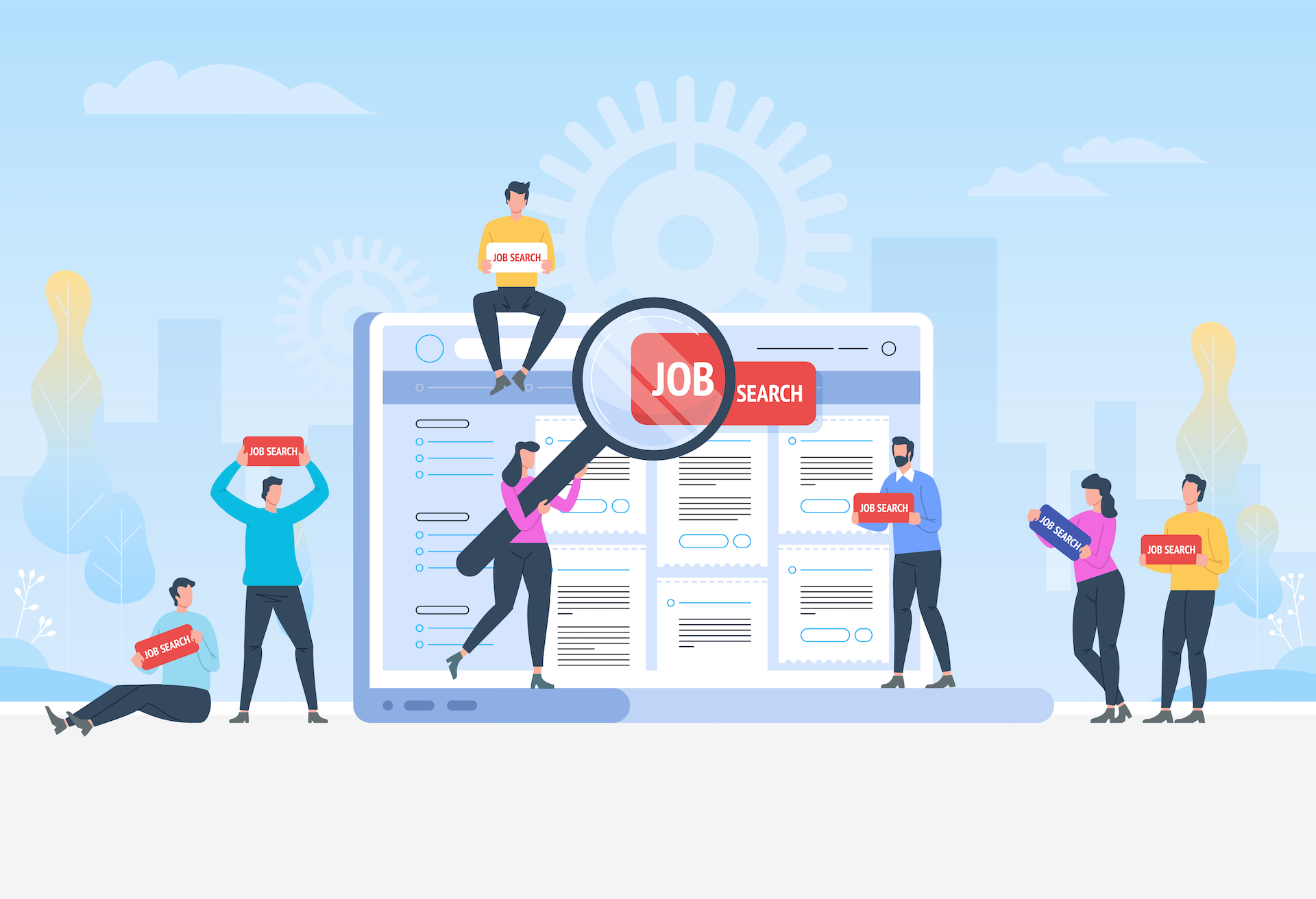Greetings, Agents of Impacts!
Featured: ImpactAlpha Original
Generation Q&A: How the pandemic strengthens the case for sustainable investing. Health and well-being. Remote work and collaboration. Resilient food systems. Long-term sustainable investment theses once relegated to the fringes of the capital markets are suddenly fundamental to the global economy. “People being forced to stay in place is revealing a lot of the futility of a lot of our activities” says Colin le Duc, a co-founder and partner of Generation Investment Management, the $25 billion asset manager also co-founded by Al Gore and David Blood. “A silver lining may just be the fact that people realize that having a more humble approach to life may actually be beneficial to everyone.”
Generation has been waving the sustainability flag since 2004. The COVID-19 outbreak has revealed the fragility of our system as it is currently organized and is making a strong case for the principles of sustainable investment, said le Duc in a conversation with ImpactAlpha. “Fundamentally, sustainable businesses are better long-term businesses, and as a consequence should be better long-term investments.” Based in San Francisco, le Duc oversees Generation’s multi-billion-dollar private equity portfolio. One sustainability trend accelerated by the pandemic: Remote collaboration. Generation’s portfolio includes electronic-agreements company DocuSign, project management software Asana, and Remitly, which enables digital remittances. The current crisis may be strengthening the case for sustainable investing, but “the ball was already rolling pretty quickly, thanks to cultural changes and citizen activism, in particular around climate,” he says. “This is just an accelerant for a short period of time on a trajectory that is inevitable. Sustainability is imperative.”
Keeping reading, “How the pandemic strengthens the case for sustainable investing,” by Dennis Price on ImpactAlpha.
Dealflow: Follow the Money
Blue Planet raises $25 million for waste management in Singapore. As Asia’s consumer class grows, so does its waste. Blue Planet Environmental Solutions is buying technologies and companies that handle collection, sorting and processing in order to recycle and upcycle discarded material and eliminate landfill waste. Blue Planet acquired Malaysian industrial waste management company Globecycle Holding in August and bought India-based organic waste processing company Xeon Waste Managers in September. It raised $25 million from investment bank Nomura. Prior investors include the Neev Fund, a partnership between the State Bank of India and the U.K.’s DFID.
- Asia’s circular economy. Corporate-backed Circulate Capital is tackling ocean plastic and other waste issues in Asia (see, “Catalyzing capital to prevent plastic waste”). Impact investor Aavishkaar has backed India-based recycling venture Nepra in multiple funding rounds. KKR’s $1.3 billion Global Impact Fund invested in India-based waste management firm Ramky Enviro Engineers as one of its first deals.
- More.
Omidyar Network India launches $1 million fund to support gig workers through pandemic. The fund will back tech startups with solutions geared towards the bottom 60% of Indian earners whose livelihoods have been affected by the coronavirus.
CollectiveCrunch secures €500,000 to pilot forest management software. The European Space Agency backed the Finnish-German startup, which uses mapping and artificial intelligence to help timber and forestry companies adopt sustainable planning and management.
Signals: Revaluing Resilience
Strengthening collective bonds across the social distance. A crisis can bring out the worst or the best in us. Across the globe, millions of people are choosing “best,” picking up groceries for vulnerable neighbors, buying gift cards to keep local businesses afloat, and sending takeout orders to frontline health workers. This grassroots response is moving quickly to bridge gaps as Congress haggles over a relief package that could take weeks to reach families and businesses. Mutual aid networks that match people in need with neighbors who can help have remade the lowly spreadsheet as impact tech. The neighborhood aid networks have spread around the globe nearly as fast as the coronavirus itself. “Ecosystems with the most supportive, interdependent, inter-species relationships have the highest survival rates,” writes Sandra Kwak of solar finance startup 10Power. The coronavirus crisis “is a test of how we take care of each other and an opportunity to set up and fortify social infrastructure that supports coordinated action from the local to global level.”
- Peer-to-peer. Cooperatives and other forms of mutual aid can flourish when systems break down. In Minneapolis, Star Finance, a Somali-led cooperative that evolved from immigrant-led savings circles, “could work when the market economy shuts down,” writes SOCAP co-founder Kevin Jones.
- Open source. Makers, entrepreneurs and tinkerers are sharing open-source plans for everything from masks to ventilators even as government and industry struggle to meet demand for critical supplies needed by hospitals and healthcare workers. Open Source Ventilator, created by a trio of engineers in Ireland, has hundreds of contributors worldwide. Chilean startup Copper3D is refining an open-source design for 3D-printed antiviral masks.
- Crowdsourced lending. Crowdfunding has helped thousands of small businesses raise capital from their communities since 2016. Now businesses can tap crowdfunded emergency loans. WeFunder’s Coronavirus Crisis Loan program offers loans of up to $1 million; revenue-based repayments are deferred until 2021. “Small businesses need access to cash, and customers and community members desperately want to help,” says WeFunder’s Jonny Price. Estonia-based Wisefund offers crowdfunded loans for European businesses.
- Local funds. Cities are stepping up to provide relief to small businesses and organizations affected by COVID-19. Birmingham, Philadelphia, Erie and Atlanta have launched funds to provide grants and low- or zero-interest loans.
- Pay it forward. Online lender Kabbage will help small businesses sell gift cards online. Pre-pay app Credibles lets customers pay in advance for products and services from their favorite businesses.
- Get mutual.
Agents of Impact: Follow the Talent
Hiro Mizuno exits his role as executive managing director and chief investment officer of the $1.6 trillion Japan Government Pension Investment Fund (his term was set to end this month). The world’s largest largest retirement plan has not yet announced a successor (see, “Hiro’s Journey”)… April Underwood, ex- of Slack, joins Obvious Ventures as a venture partner… Cornerstone Capital brings on Glen Macdonald and Shahnawaz Malik as managing directors and senior investment advisors… Big Path Capital is hiring an analyst or associate… Minneapolis-based Finnovation Lab will begin accepting applications for its fellowship program on April 1… Slow Money Northern California is hosting an online discussion about supporting restaurants, farmers and other food providers today at noon PT.
Thank you for reading.
–Mar. 25, 2020











